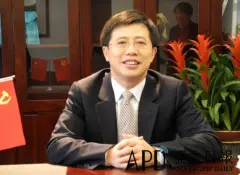US aerospace firm SpaceX launched the CRS-11 Dragon capsule to the International Space Station (ISS) on June 3, carrying a Chinese experiment device from the Beijing Institute of Technology (BIT). It marks China's first official experimental project onboard the ISS, providing China with a further step in its space exploration program.
The 3.5-kilogram device is tasked with conducting research on the effects of space environments on DNA. Researchers from BIT are keen to test whether space radiation as well as microgravity will cause mutations among genes or not, and how it will happen.
“Space radiation could cause harm to astronauts, especially when they are in space for a long period of time. We hope to do more research on this and learn how big the risk of gene mutation is for humans in space”, said Deng Yulin, a professor from the School of Life Science at BIT.
Born in 1962, Deng was honored as academician from International Academy of Astronautics on 2013. On April 20, 2017, China’s Tianzhou-1 cargo spacecraft was successfully launched, carrying scientific experiment devices from Deng’s research team. Deng called the launch of the Tianzhou-1 as taking China "into the next stage of research of life sciences’ development”.
The genetic make-up of plants will be altered in space.
As the chief researcher, when talking about the experimental project on the ISS this time, Deng spoke highly of it and emphasized the importance of the experiment.
“It is quite different from other scientific experiments we have ever done. In order to get more necessary information, we do not only theoretical but also technical innovation to improve the experiment.”
Deng said that the experimental scientific project operated on the ISS this time will do research on the mutation of 20 kinds of genes.
The Alliance Atlas V rocket carrying Orbital ATK's Cygnus spacecraft was launched successfully.
“As a wonderful platform, the ISS could give us opportunities to make use of the space conditions, which are different from the environment on the earth, to learn more about ourselves.”
(CGTN)
 简体中文
简体中文

